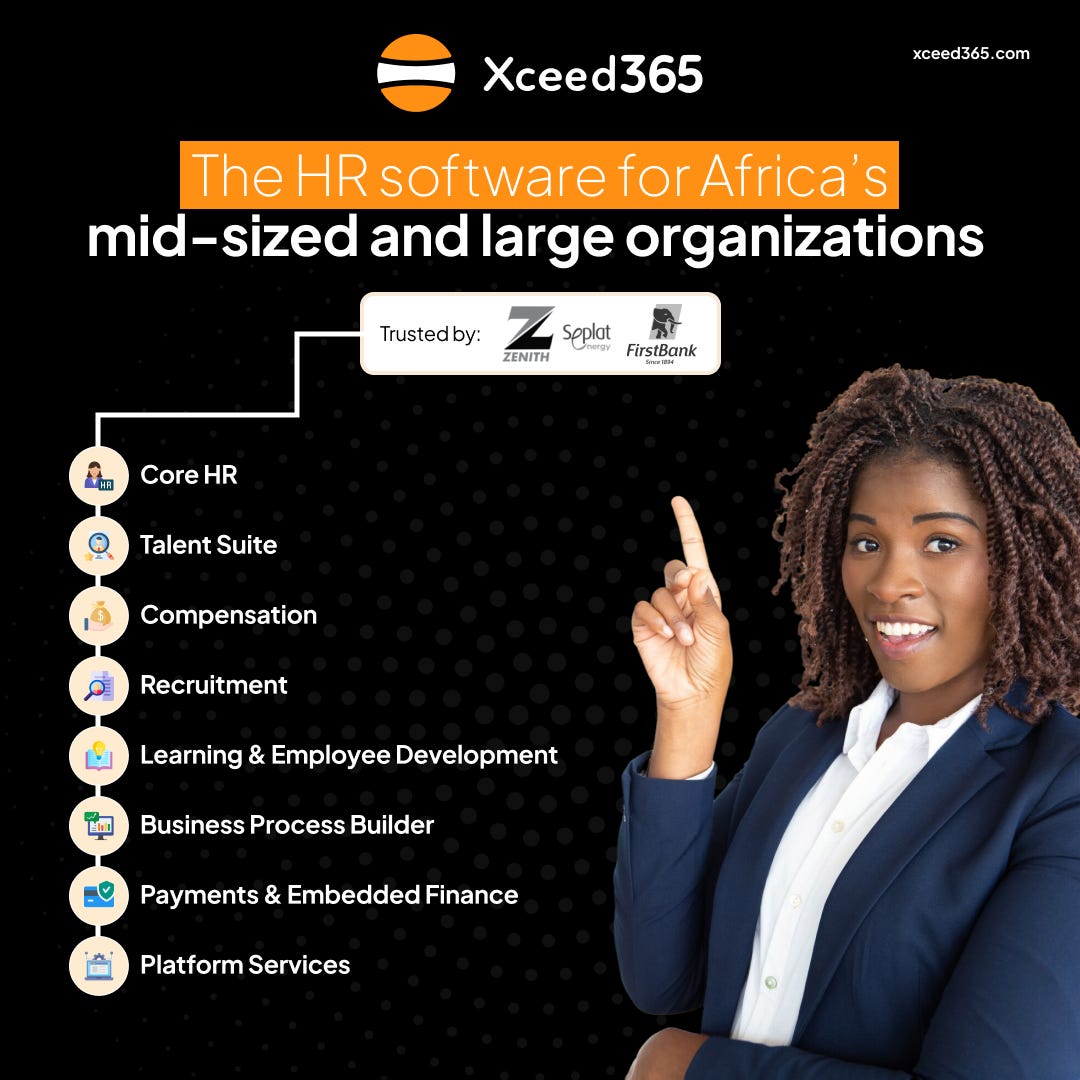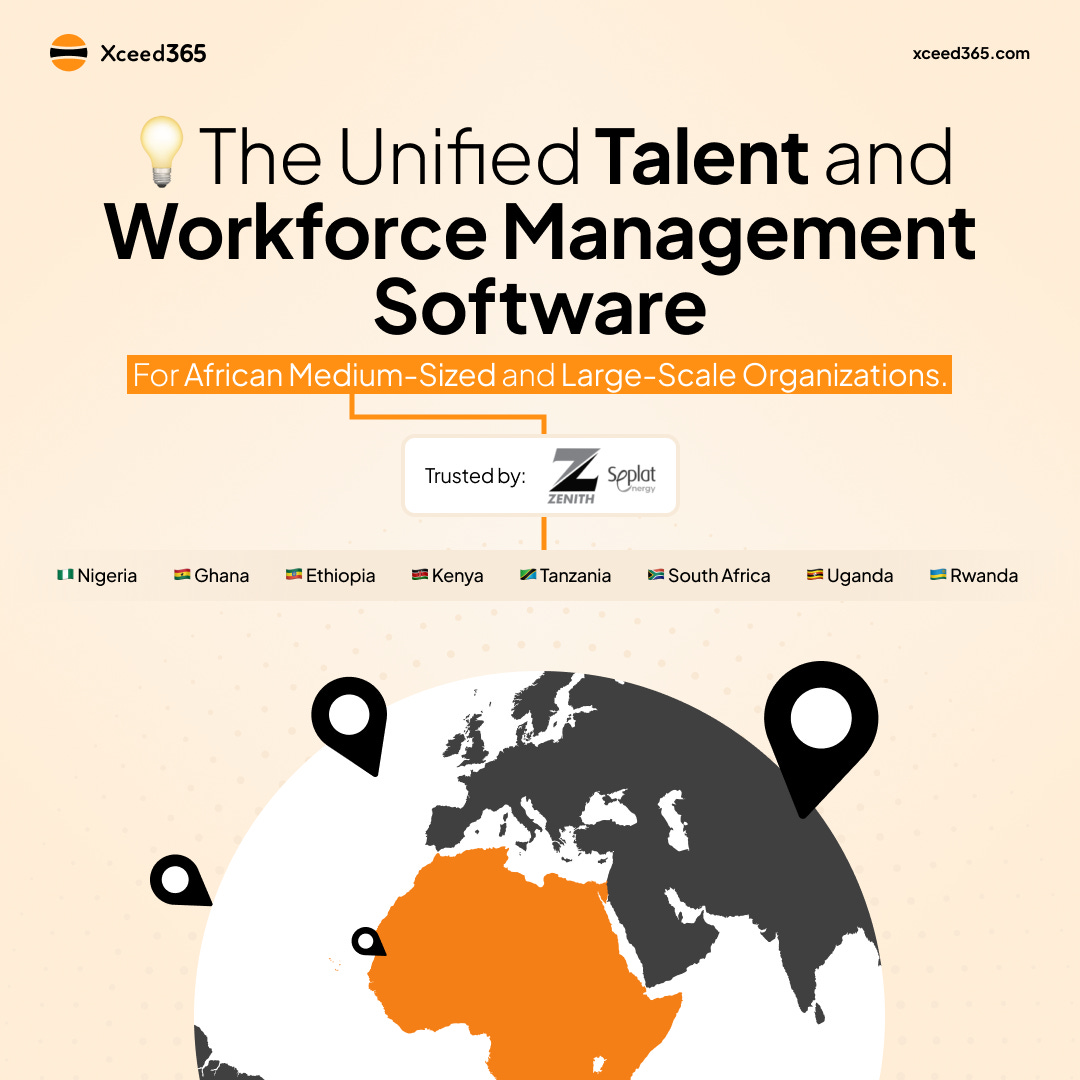The State of HR & Productivity in Africa: Q1 2025 Insights
Key Trends Shaping How Africa Works: AI in HR, Kenya's Nomad Visa, and the Rise of Skills-Based Hiring
From the bustling tech scene in Nairobi to the industrial heartlands of South Africa and the vibrant entrepreneurial spirit of Lagos, significant shifts are reshaping how organizations attract, engage, and empower their people.
Inside, you'll discover the increasing integration of Artificial Intelligence in HR functions, explore the early impact of Kenya's ambitious remote work initiative, and understand the growing momentum behind skills-based hiring. We also examine the innovative strategies companies have employed to navigate productivity challenges and highlight important policy advancements focused on workforce well-being and talent development.
The Big 3 Trends Dominating Q1 2025 Across Africa:
AI is Now HR's Right Hand:
South Africa: Companies are increasingly using AI in HR, particularly for recruitment, employing advanced algorithms and AI-powered screening tools to remove bias and gain real-time insights.
Kenya: The government launched the National Artificial Intelligence Strategy (2025–2030), indicating a broader embrace of AI across various sectors, which will likely influence HR practices beyond recruitment.
Kenya's Remote Work Revolution:
Kenya: Launched the Digital Nomad Work Permit (Class N) in January 2025 to attract remote workers, freelancers, and entrepreneurs, aiming to become a remote work hub in Africa. Nairobi and coastal areas like Kilifi are expected to be key locations.
The Kenya Digital Nomad Visa allows remote workers to live and work legally in Kenya for up to a year. To qualify for Kenya's digital nomad work permit, announced in October 2024, an annual income of at least $55,000 is required.
Local Impact: Kenya anticipates a boost in tourism, real estate, and hospitality due to the influx of digital nomads.
The Death of the Degree?
Pan-African Trend: A growing emphasis on skills-based hiring, where employers prioritize a candidate's abilities and competencies over traditional qualifications. Research from March 2025 suggests a significant majority of employers are adopting this approach.
Why it Matters: Skills-based hiring aims for better accuracy in matching candidates to roles, expands the talent pool, and can improve employee retention.
Verifiable Information: Skills-based hiring is a paradigm shift allowing access to a broader and more diverse candidate pool and improving hiring accuracy.
The Productivity Killers (And How Companies Are Fighting Back):
Power Outages in Nigeria
Smart Responses: Increased adoption of solar power, particularly as a response to the unreliable power supply. The annual economic loss due to power outages in Nigeria is substantial, driving the need for alternative energy sources in workplaces. The Nigerian Rural Electrification Agency (REA) is targeting solar power for public institutions in 2025 to cut governance costs.
Zoom Fatigue in South Africa
Smart Responses: Some companies are implementing strategies like "no-camera Fridays" to alleviate stress and burnout associated with excessive video calls in remote work environments.
Brain Drain in Ghana
Smart Responses: Talent retention is a significant challenge. Companies are focusing on offering competitive compensation and benefits packages to retain skilled employees. Investing in learning and development opportunities is also crucial for retaining talent, as employees often stay where they can grow.
Policy Wins You Should Know About:
South Africa's Mental Health Move:
The Department of Employment and Labour held events in April 2025 focusing on workplace health and safety, including discussions on the impact of digitalization and AI on workers' health, indicating a growing policy focus on employee well-being.
Verifiable Information: In 2025, there's a growing demand for comprehensive mental health support and wellness initiatives in South African workplaces.
Egypt's Upskilling Surge:
Egypt launched the "Digilians" initiative in March 2025, aiming to train 5,000 tech experts annually in fields like AI and cybersecurity through comprehensive training and collaborations with tech firms. This reflects a national focus on building a skilled workforce for the digital economy.
Verifiable Information: Egypt plans to upskill 500,000 people in tech in the next year, with a focus on skills like Python, JavaScript, data science, cybersecurity, and AI.
Tools Changing the Game:
Xceed365 HCM: A Human Capital Management solution designed for African mid-sized and large-scale organizations to streamline HR and payroll processes, offering features like automated HR management, AI-powered performance analytics, payroll and compensation management, and employee self-service portals.
What's Coming Next?
Kenya's Internet Blitz: Internet penetration in Kenya was at 48.0% in early 2025, with a high percentage of mobile connections being broadband-enabled (94.7% considered "broadband" via 3G, 4G, or 5G). The government continues to expand fiber optic connectivity across the country, which is crucial for supporting remote work and digital transformation.
South Africa's AI Rules: South Africa has a draft National AI Policy Framework, which was set to be sent for official evaluation in April 2025. The Financial Sector Conduct Authority (FSCA) also plans to publish a market study on AI in the financial sector in 2025, indicating a move towards regulating and understanding the impact of AI. The AI policy framework includes strategic pillars like professional responsibility, promotion of cultural and human values, safety and security, and human control of technology, adopting a human-centric approach to AI systems.
General Trends Across the Region:
Employee Expectations: Employees across Africa, similar to global trends, are increasingly expecting competitive salaries, non-monetary benefits (like health insurance and mental health support), clear career paths with learning and development opportunities, flexible work arrangements (hybrid or remote), recognition, open communication, and inclusive workplace policies.
Well-being Prioritization: There's a growing awareness of the importance of employee well-being, encompassing mental, physical, and financial health. Companies are starting to implement wellness programs, employee assistance programs, and promote work-life balance.
Technology Adoption: Beyond AI in HR, there's a broader trend of adopting technology to improve HR efficiency, streamline processes (like payroll and performance reviews), and gather data for better decision-making.
Conclusion
The first quarter of 2025 has undeniably set a dynamic pace for HR and workplace trends across the African continent. We've witnessed the tangible impact of AI in streamlining recruitment, the bold steps taken by Kenya to embrace the remote work revolution, and a significant shift towards valuing skills as much as, if not more than, traditional academic qualifications. While challenges like power outages, remote work fatigue, and brain drain persist, the innovative and proactive responses from companies across Nigeria, South Africa, and Ghana demonstrate a resilient and forward-thinking approach. Policy developments in South Africa focusing on mental health and Egypt's ambitious upskilling initiatives further underscore a commitment to a thriving and productive workforce.
These evolving trends highlight the need for organizations in Africa to be agile and adaptable, embracing technological advancements and prioritizing the well-being and development of their employees. Xceed365 HCM is designed to empower African mid-sized and large scale businesses in navigating this dynamic landscape. As a comprehensive Human Capital Management solution, Xceed365 HCM streamlines HR processes, leverages AI-powered analytics for better decision-making, and provides tools for efficient talent management, payroll, and employee engagement.
Ready to future-proof your HR and empower your workforce? Schedule a discovery call to explore how Xceed365 HCM can help your organization thrive in the evolving African workplace.





